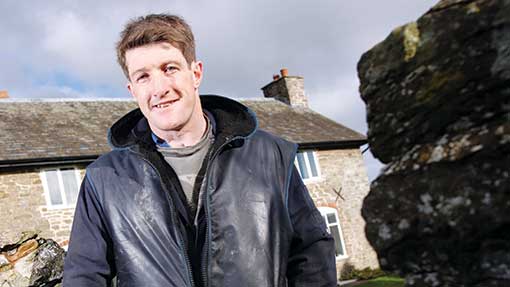Farmer Focus: EU regulation impeding herd efficiency

Another month has flown by, much like our summer again this year this. While harvest started very promisingly we have been slowed down like many due to large amounts of rain and very damp conditions.
On the plus side this has helped grass growth and allowed us to reseed just over 50 acres and plant nearly 170 acres of stubble turnips. The establishment of turnips has only been superseded by the very active slug population who have taken a fancy to our turnip seed and probably taken over 50% of the crop. I have broadcast more seed and applied a large dose of slug pellets, but only time will tell how successful this is.
My autumn calving herd is about to start calving and while I have all of last year’s bulls in the shed ready to go, I am hampered by the fact that EU regulation won’t allow bulls to be killed below 12 months old.
With a number of bulls ranging from 650-700kg, these bulls should be gone. I can’t help think the efficiency of a suckler herd would be vastly improved if we could have the previous year’s calves killed before its mother gives birth again. This is red tape that is hampering the industry and as growth rates improve across all breeds, this is a problem that will affect all bull producers.
Read more from our other livestock farmer focus writers
Like many, this year we have had a higher percentage of lameness in the ewes. Having decided I must do something about it I am faced with the dilemma to vaccinate or treat the whole flock with antibiotics. With pros and cons for both I would be happy to hear from anyone with advice. I have also decided to reintroduce some Lleyn genetics back to my breeding flock. Having used New Zealand genetics for some time I feel that the Lleyn is much improved and has come along way with improved growth rates and inroads into worm resistance. I think the breed will benefit my flock greatly.
I have recently purchased the new Fecpak, which allows me to take dung samples and send an image to New Zealand and get egg counts, the product to drench them with and any other advice that they can offer within 24 hours. I think knowing this information will greatly improve my worming strategy, but someone also mentioned it’s nice to send some crap back.
James Evans farms 300 Stabiliser suckler cows and 1,110 Llen cross ewes across two units, totalling 825ha, in Shropshire. He was 2012 Farmers Weekly Beef Farmer of the Year
